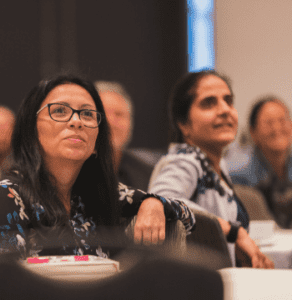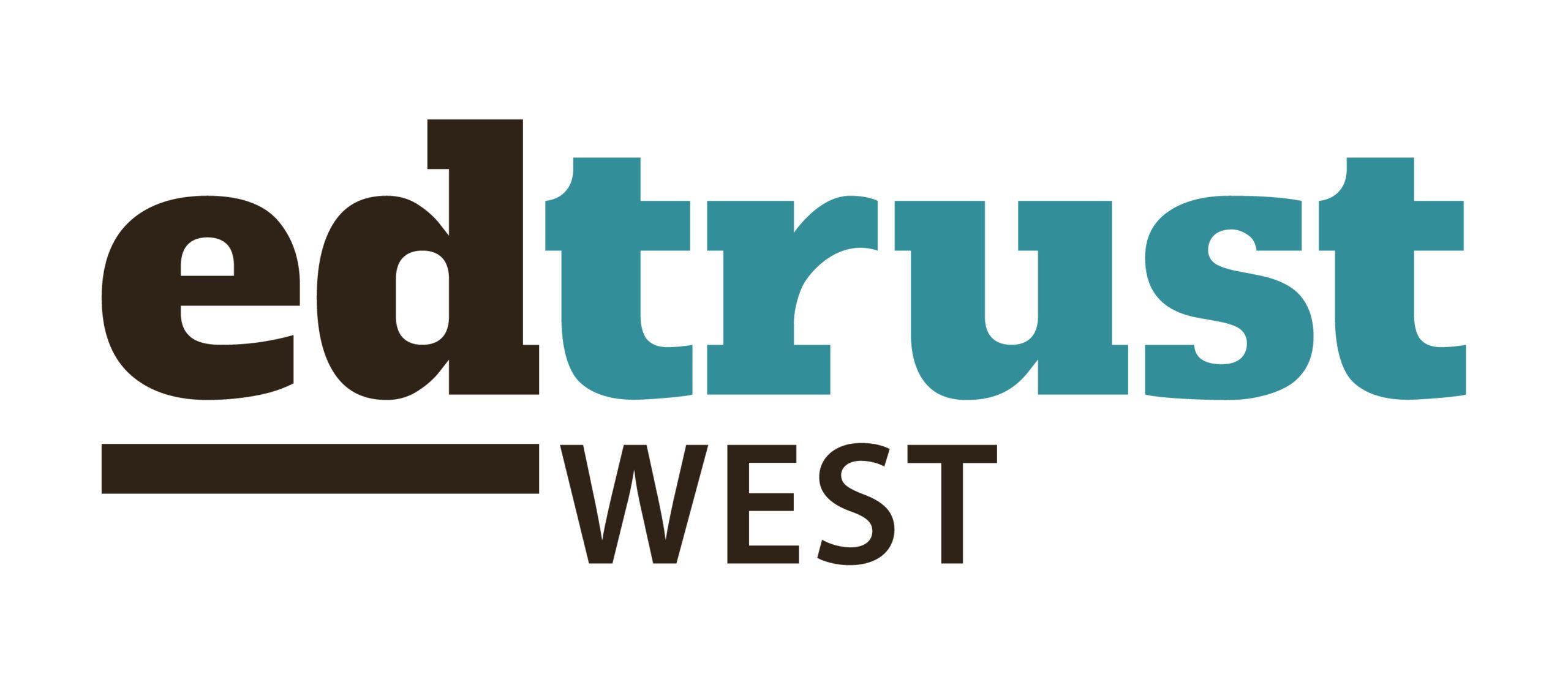In closing out Ed Trust–West’s Ed Equity Forum earlier this fall, Ruben E. Canedo Sanchez urged attendees to do something that is unfortunately unusual in advocacy and social change work – to consider how we may unintentionally be oppressive within the very work we’re doing to change oppressive systems. It was a fitting conclusion to a day themed around accelerating the movement for racial justice in education. Often in this work, we hear about the need to work smarter, not harder, yet we know that speeding up the pace of change is crucial for our students and communities. This year, forum participants grappled with this very real challenge – how do we move forward in the work of educational justice in ways that are both strategic and sustainable? How do we reflect on our own work, individually and collectively, in ways that ensure we are disrupting the patterns of injustice that students and families face?
That closing sentiment echoed the morning call from Dr. Elisha Smith Arrillaga, ETW’s Executive Director, to see the work of education equity and justice in the here and now as a continuation of the civil rights movement. Movements, Dr. Smith Arrillaga reminded the crowd in Long Beach this year, are made up of people. The participants and panelists who gathered for this year’s forum, are a true testament to just how well positioned California is to lead the nation. This year’s Forum made one thing abundantly clear: our communities of students, parents, educators, school leaders, and education advocates are well-equipped to bring equity to fruition in California’s schools and colleges.

As participants heard during Dr. Smith Arrillaga’s opening, more than one in ten K-12 public school students in the country attend school in California, and 1 out of every 4 community college students in the nation studies at a California campus. The state is home to the largest public university system in the United States, and has the fifth largest economy in the world. We are not without the resources – from the wealth of our state to the vast range of expertise within it – to transform California’s education system into one that truly works for the students of color, students from low-income families, and others that have been underrepresented for far too long.
In fact, as Dr. Bettina Love reminded us during this year’s lunch keynote, students themselves have a wealth of expertise within them – we just need to listen differently. Dr. Love’s message was powerful – this work is about the very lives and wellbeing of our students, and in her words, they want to do more than survive. Accelerating the work of racial justice in education means showing up in different ways. It means, as Dr. Love put it, being not just an ally or an advocate, but a co-conspirator.
For the hundreds of participants at this year’s Forum, and the many who followed along with the #EdEquityForum2019 hashtag online, a resounding sentiment throughout the day was the importance of people power – and the need to sustain each other and ourselves in this work as we speed up the pace of change. Forum respondents were clear in their feedback – the agenda showcased the remarkable talent and leadership that exists in classrooms, campuses, and communities. We know just how valuable the learnings and resources in those sessions were, and in case you missed the forum, or want to refer back to a session, you can find resources and presentations from Forum sessions here.
We were excited for this year’s Forum to serve as a catalyst to connect those working for student success, to double down on our collective commitment, and to help lay out a path forward for the next phase of educational equity and justice work in our state. As we head into 2020, you’ll be hearing more from us – and we want to hear from you – on how we can increase opportunities to work together in this fight. The lessons of this year’s Forum will continue to push us at ETW to be even stronger co-conspirators with you in accelerating the progress of educational justice in California.
